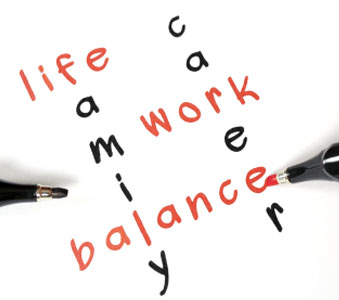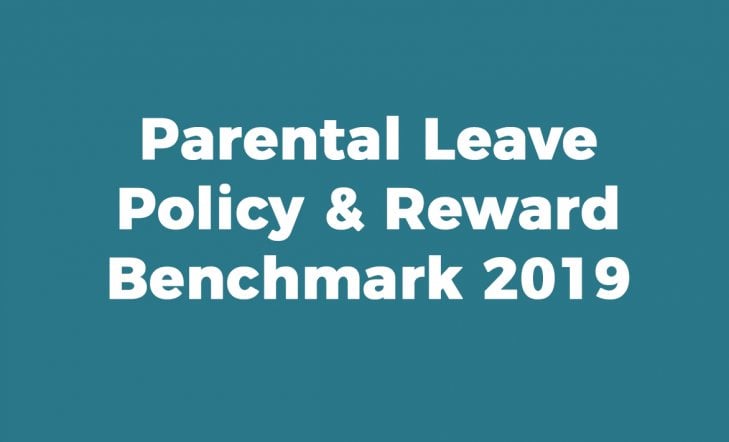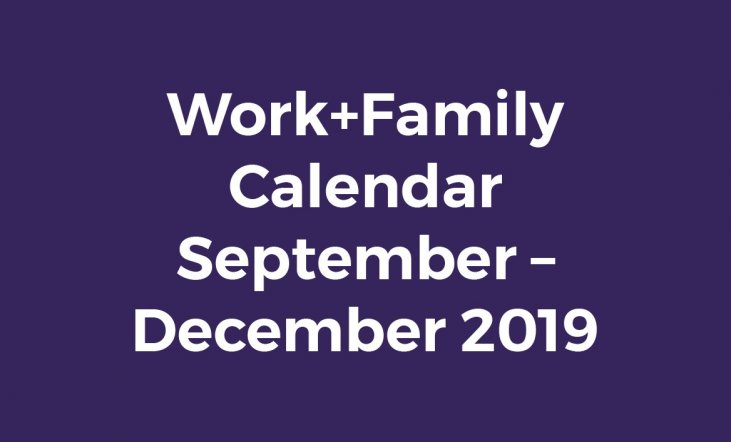Newsletter Sign Up
Regular work+family updates for
HR and diversity professionals.
My Family Care asks Oliver: Every year people make resolutions to change something that didn't work last year. When it's the balance between work and life that isn't working, how can employees be supported through personal and professional changes that benefit both the employee and the company?
Hmm, New Year's Resolutions...
I admit that I always sort of struggle with resolutions. I mean why wait for New Year to make some changes? However as resolutions go, great work life balance has yet to make it onto my list explicitly.
This is a big subject and there has been and will continue to be a lot written about this. Alas, I am no academic, rather a fairly simple Yorkshireman who believes there are some clear and simple things that can have a significant impact.
I believe you can boil these down to 3 fundamental areas and, if applied correctly, make a key difference in ensuring a person can successfully combine work+family. These 3 areas broadly fall into the following:
Get these things right and everybody wins - the employer and the employee.
Wins for the Employer
First, let's concentrate on the wins for the Employer when they get this right. Why should they? You would have to be an idiot not to work out that "retaining talent" is key to the success of any business. I am sure that on nearly every business mission statement it says somewhere, that people are their most important asset.
Chances are the people who are struggling most with balancing work and life are parents. When you are in your 20's the camaraderie of pulling an all nighter might be great, as a mother or father it isn't. Therefore the people you are helping are going to be a little older, a little more senior and then much more important to the business. These are the managers and leaders of the future. Losing them is just plain bad for business.
On the flip side - if you help them combine a career and a family, they will be hugely engaged in the business, very productive (no idle time for chit chats at the coffee machine) and very loyal. Why would they go somewhere else to a less supportive employer and put that hard fought work/life battle back into conflict again? Similarly the younger generation will be looking at this group and making their own decisions on whether this is a business they want to join or stay with. Is this an organisation that cares about me and my life?
Okay - on with the "HOW" and back to my 3 headings.
Cultural:
The business or organisation has got to want to help their employees. I mean at a fundamental level, the CEO and their board have got to publicly say this is important and measure it. They have to translate this into the DNA of the business. Not just in the form of policies, but more importantly in supporting the line managers. Line managers need to understand that it isn't about being "nice", "fluffy" or "wet", instead it's about listening and finding a solution that works for everyone. It's also the smartest way to keep talent in the business and therefore grow turnover and profits.
Simply breaking down the barriers between employees and managers so they can talk about these things will pay dividends. If they don't, or it's just lip service, I am sorry to say you are unlikely to have much success.
Emotional / Coaching:
Having a family is quite complex. And there are added responsibilities because you are not just a parent; you're also a partner, a sibling, someone's child, an employee and much, much more. The press paint wonderful pictures and expectations of "perfection", that you can be both a brilliant parent and career driven employee. Try having no sleep, changing nappies at 3am and make it to work, cheery, dynamic, on time and career driven, whilst leaving carnage, bitterness and tears at home? I don't think so.
A little help, especially for mothers (but not exclusively) can make a big difference. Getting that positive mind-set through a little coaching or training will pay big dividends. Creating a view that it is possible to do both, celebrating role models in the business, managers that "get it", and recognising that some flexibility goes a long way. These are all things that make it possible for parents to do both roles.
Oh and on the subject of "Perfection", it doesn't exist. I mean I heard that Nicola Horlick (superwomen) has 2 full time nannies 24/7... but also that she apparently has 2 houses next to each other because she doesn't have a great relationship with some of her children. It's time to forget that you can have it all or even be brilliant at both. It's time to understand your compromises, and realise it doesn't have to be a stark choice.
Practical:
I won't spend too long on this, but things like getting the fundamentals of childcare right at the start, getting the right advice, will pay big dividends.
I love things like our Backup Care service, which is a life saver when it all goes wrong, and it will! But some practical help along the way will also make a massive difference.
The funny thing about these 3 things (Cultural, Emotional & Practical), is that they sound simple, they don't cost the earth, they make a load of sense, and they have a big impact. As my father said "n'out complicated about that lad".
Do these 3 things well and you will have a successful strategy for combining work+family in 2013 and beyond.
Oliver Black, Director, My Family Care












